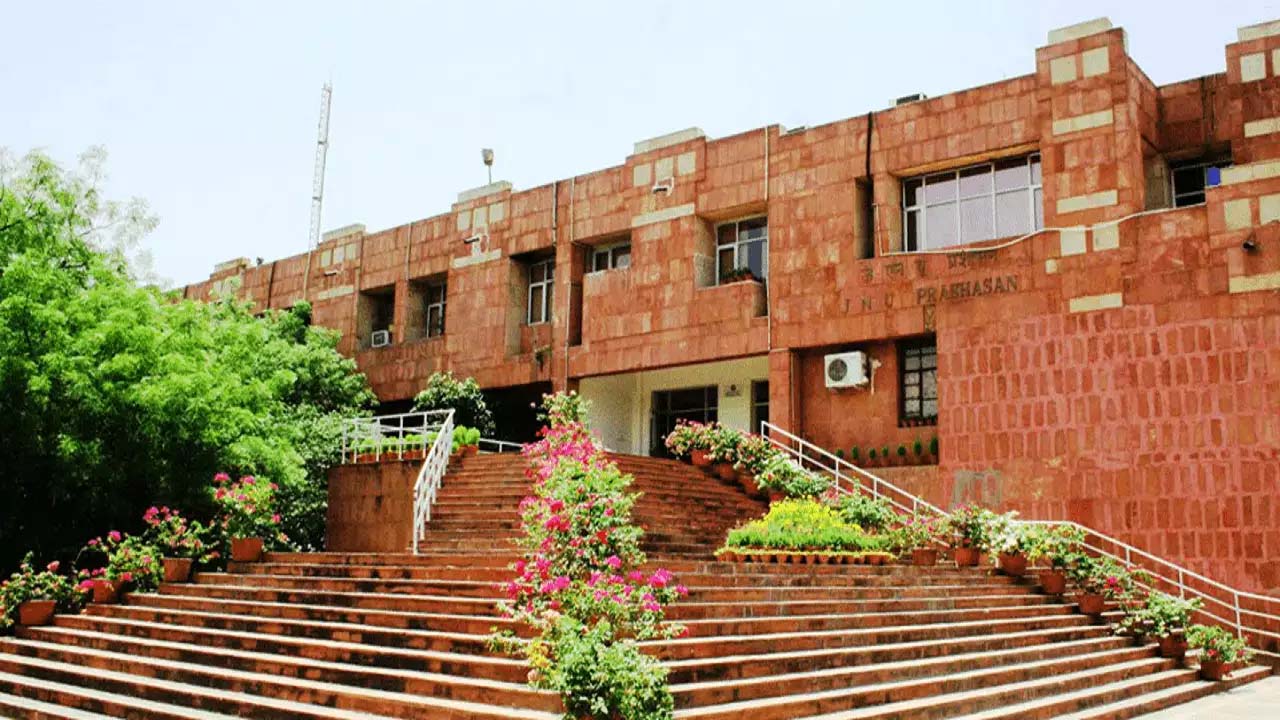In the capital city of India, New Delhi, after an interlude lasting four years, the electoral process for the Jawaharlal Nehru University Students’ Union (JNUSU) commenced on Friday. The number of registered electors exceeds 7,700, all poised to exercise their voting rights. The initial phase of polling has already begun and is scheduled to continue until 1 pm, followed by the second phase from 2.30 pm to 5.30 pm.
Counting of the votes began promptly at 9 am, with the results slated for announcement on Sunday. Across various Centers of Studies, a total of 17 polling booths have been established to facilitate the casting of votes. Special provisions have been made for visually impaired students, incorporating a digital voting mechanism.
The voting process encompasses a secret ballot, conducted separately for both the JNUSU central panel office bearers and councillor candidates. There are a total of 19 contenders vying for positions on the JNUSU central panel, alongside 42 candidates competing for school councillor positions. Notably, eight aspirants are eyeing the esteemed role of president.
The composition of the Central panel includes positions for president, vice president, joint secretary, and general secretary. The United Left coalition, comprising organizations such as the All India Students’ Association (AISA), Democratic Students’ Federation (DSF), Students’ Federation of India (SFI), and the All India Students’ Federation (AISF), has put forth Dhananjay as their candidate for the presidential post, with Avijit Ghosh and Mh Sajid contending for vice president and joint secretary, respectively.
However, the nomination of Swati Singh for the position of General Secretary from the Left panel faced cancellation by the Election Committee late at night, following a challenge raised by the ABVP. Noteworthy is Dhananjay’s background, hailing from Gaya, Bihar, potentially making him the first Dalit president from the Left since Batti Lal Bairwa in 1996-67.
On the other side, the RSS-affiliated ABVP has fielded Umesh Chandra Ajmeera for the presidency, with Deepika Sharma, Arjun Anand, and Govind Daangi contesting for vice president, secretary, and joint secretary roles, respectively. Ajmeera’s candidacy is marked by his unfortunate past as a victim of Naxalite attacks, enduring the tragic loss of his parents in such incidents.
From the Congress’s student outfit, NSUI, Junaid Raza stands as the presidential candidate, while Farheen Zaidi vies for the position of general secretary. BAPSA presents its contenders for the Central Panel, including Biswajit Minji, MD Anas A, Priyanshi Arya, and Rupak Kumar Singh, competing for various positions. Minji, originating from an Adivasi community in West Bengal, draws strength from his parents’ experiences as contractual laborers, presenting himself as a potential first Adivasi presidential candidate if elected.
The presidential candidate from Samajwadi Chatra Sabha, representing the only female contender for the presidency, hails from Uttar Pradesh’s Azamgarh district. Her aim resonates with the battle against patriarchy and her aspiration to amplify the voices of the oppressed within the campus community.









